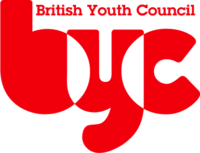Advocating for Erasmus+ in Parliament and beyond
On 5 December 2023, I attended a panel event in Portcullis House to speak on behalf of the British Youth Council about why Britain should rejoin the EU’s flagship Erasmus+ mobility scheme. Hosted by our members at the Young European Movement UK (YEM UK), this event marked the launch of their Embrace Erasmus+ campaign, which
- Published in Blogs, UK Young Ambassadors
UK Young Ambassadors attend Chatham House Annual Flagship Conference
In June the Royal Institute of International Affairs, Chatham House, hosted its annual flagship conference, the London Conference. The London Conference, held at St Pancras Renaissance Hotel, focused mainly on harbouring strategic cooperation and multilateralism within a current global context of competition and crisis. As members of the Common Futures Conversation programme, fellow UK Young
- Published in Blogs, UK Young Ambassadors
Highlights from the European Youth Forum General Assembly
Last month, Maurizio Cuttin, the UK’s Young Ambassador to the European Youth Forum, and I attended the European Youth Forum’s Spring General Assembly in Brussels. Representing the British Youth Council internationally is always an amazing opportunity, but it is especially cool when a BYC candidate is standing in an election. And we had an awesome
- Published in Blogs, UK Young Ambassadors
An audience with the All Party Parliamentary Group on Youth Affairs
On 16 May, myself and fellow UK Young Ambassador William Awomoyi co-chaired a special All-Party Parliamentary Group (APPG) on Youth Affairs session on international youth voice at Portcullis House. Joined by MPs, representatives from the YMCA, Chatham House, the rest of our fantastic UK Young Ambassador team (Elif, Cameron and Samaira) as well as over
- Published in Blogs, UK Young Ambassadors
What young people expect in the Commonwealth Year of Youth
2023 is an important year! It’s the Commonwealth Year of Youth. At the Commonwealth Heads of Government Meeting 2022 (CHOGM), leaders declared that 2023 would be the Commonwealth Year of Youth – coinciding with the 50th anniversary of the Commonwealth Youth Programme. It’s no secret that, with a population of 1.5 billion people, young people
- Published in Blogs, UK Young Ambassadors
Creating a more inclusive, peaceful and democratic Europe
This Spring, UK Young Ambassador Maurizio Cuttin is standing for election on the Council of Europe’s Advisory Council of Youth. Read his plan of action below. With a war raging on in Ukraine and autocrats of the left and right feeling emboldened, Europe truly stands at an inflection point, and young people’s present and future
- Published in Blogs, UK Young Ambassadors
British Youth Council calls for an independent investigation into missing asylum-seeking children
The British Youth Council is alarmed by recent reports hundreds of child asylum-seekers have gone missing from the Home Office’s duty of care. Reports state approximately 200 asylum-seeking children have been reported missing from the government’s hotels. The children’s charity is always concerned to hear of cases where children go missing but, in this instance,
- Published in News, Press, UK Young Ambassadors
Highlights from the youth conference in Berlin
Between the 30th of November – the 2nd of December 2022 Osaro Otobo, the British Youth Council’s Deputy Chair, and I travelled to Berlin, Germany to attend a special youth conference titled “Democracy and human rights in times of crisis – the contribution of young people in Europe”. Jointly organised by the Parliamentary Assembly of
- Published in Blogs, UK Young Ambassadors
Attending the European Youth Forum General Assembly
On the 23rd – 27th of November 2022 Zara Khan, the British Youth Council’s newly-elected Chair, and I travelled to Tirana, Albania to attend the European Youth Forum’s (YFJ) General Assembly. As an event that takes place once every two years, the General Assembly is truly an experience. Held in Tirana – the 2022 European
- Published in Blogs, UK Young Ambassadors
A UK Young Ambassador’s Reflections from Prague
From the 3rd – 7th November 2022 I travelled to Prague, Czech Republic to attend our bi-annual BICC (Benelux-Islands Central Cooperation) meeting. As a collection of National Youth Councils stretching from Slovakia to Belgium, Ireland and the UK, BICC meetings are always a great opportunity to debate and discuss a range of policy positions in
- Published in Blogs, UK Young Ambassadors











